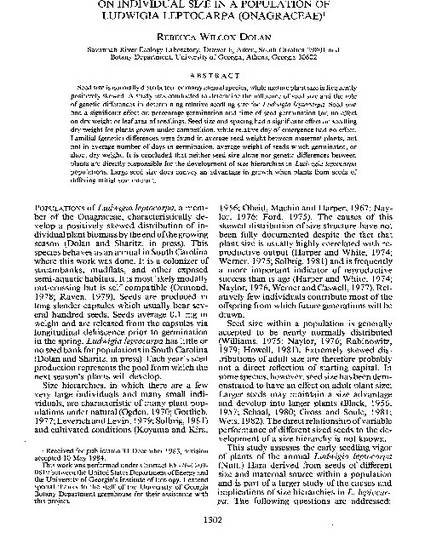
Seed size is normally distributed for many annual species, while mature plant size is frequently positively skewed. A study was conducted to determine the influence of seed size and the role of genetic differences in determining relative seedling size for Ludwigia leptocarpa. Seed size had a significant effect on percentage germination and time of seed germination but no effect on dry weight or leaf area of seedlings. Seed size and spacing had a significant effect on seedling dry weight for plants grown under competition, while relative day of emergence had no effect. Familial (genetic) differences were found in average seed weight between maternal plants, but not in average number of days to germination, average weight of seeds which germinated, or shoot dry weight. It is concluded that neither seed size alone nor genetic differences between plants are directly responsible for the development of size hierarchies in Ludwigia leptocarpa populations. Large seed size does convey an advantage in growth when plants from seeds of differing initial size interact.
Link leads to full text provided by the American Journal of Botany.
